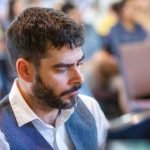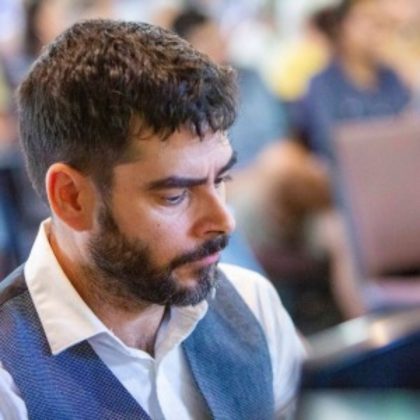Through several reflections inspired by the theme of Resistance during the month of April and the Meditation “So Hum” by Maneesh de Moor I wanted to explore a question today. I have been recognized as someone who can ask the right questions, so I took it as a challenge to explore with you a question at this time: how could I possibly be mad at you?
Sometimes I have found myself asked the question, “Are you mad at me?”, maybe you can relate. And for now, my best answer is this question: how could I possibly be mad at you? In my response I allow the word “mad” to include: upset, vindictive, angry, ready to strike back, defensive, and so forth along those lines. In reality there is nothing nobody can do to make me mad/angry at them. They can scream, burn my limbs, cut my flesh in little pieces and so forth along these lines and still my answer would be this same question because I am sovereign of my state of being. Yes, you can be sovereign. Therefore, when someone is trying to oppress you by coercing you into believing otherwise, remember, you can be sovereign too. Let’s take the case of Vietnamese monk Thích Quảng Đức , who protested and resisted against the government that was persecuting his practice of Buddhism. He did so by being, choosing to be a martyr for his people, and proving that even the very flames of fire wouldn’t make him flinch.
Let’s say we don’t always remember how to be sovereign of our state of being, the question “Are you mad at me?’ may be valid if you think the other person is taking away your peace. If you ever find yourself thinking that someone is mad at you and after asking the question, they say yes both of you are engaging at the “ego” level. The person asking the question is projecting their outlook and the responder is caught in that projection and forgetting they can reclaim sovereignty of their state of being at any point. Let’s say the person asking the question has sufficient motifs to ask the question, they have beaten the other person, consciously being abusive physically and/or verbally, or unconsciously being abusive physically and/or verbally. Do you really want to give your sovereignty and your power of being over to such a mad person? You ultimately have a choice, yet that is very hard for most of us to believe. Not just having a choice, but having the power to belief in ourselves to be who we love being. However, we don’t, truly, need another monk to self-immolate to prove this, and you can resist any mad projection by just being yourself and opening your heart.
Even if I am in a situation feeling anger in the presence of others, for things that contributed to me allowing myself to feel anger, which by the way takes a lot of vulnerability and trust, I still would answer “How could I possibly be mad at you?” This question would help me allow to sit with my anger and let it inform me how to act, rather than direct it/project it unto others. This interaction is outside the “ego” level. You are taking responsibility for your thoughts and feelings and exploring within their cause and where they are pointing at. Ultimately in an uncomfortable situation Eckart Tolle advises for you to make one of these choices: to remove yourself, change or accept the situation. Rarely we can do all three as effectively as Thich Quang Duc. He removed himself from the world of the living under the conditions of being persecuted for his spiritual practices, his act was so impactful as to inspire change, and he accepted the situation of self-immolation with an open heart.
About the author

Angel de Armendi, Music Director
Angel (he/she/they/any) received his Bachelor of Music degree from New World School of the Arts and continued his study of piano performance at Florida International University. He made his way to Tallahassee through the Music Theory graduate program at FSU. While in school he diversified his piano skills accompanying FSU and Tallahassee City Ballet dance classes. His interest in vocal coaching took him to the Asolo Song Festival in Italy during two summers, as Assistant Director/Pianist and Composer In Residence. In Tallahassee, he also directs the High Holy Days Choir at Temple Israel, and has been their regular pianist since 2008. His love for sacred music and practice has motivated him to go through and graduate in 2015 from the Music Leadership Credentialing Program, offered by the Unitarian Universalist Musicians’ Network. During their 2015 conference in Boston he was unanimously elected as Board Member at Large for the Board of Trustees, a three-year voluntary commitment. He is deeply committed to building a thriving music program at the Unitarian Universalist Church of Tallahassee.

